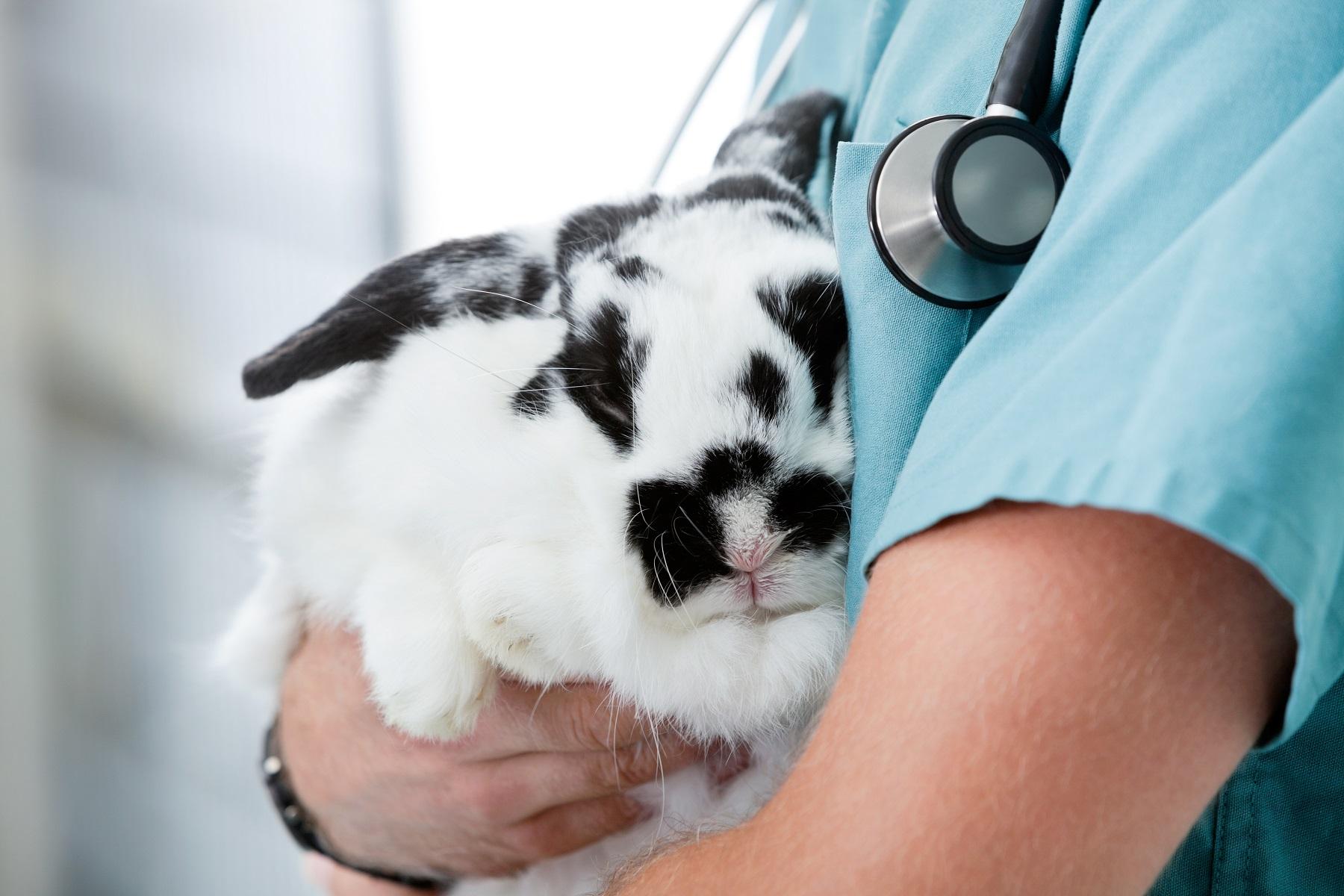Rabbit teeth
Each tooth in a rabbit is constantly growing. The usual rate is about 2mm per week but this can be increased when there is dental disease present.
To prevent overgrowth there must be a constant wearing down of the teeth by chewing. For the wear to be even, and prevent sharp spikes and spurs developing on the teeth, it is important that the teeth are perfectly aligned.
Even if your rabbit’s teeth start off perfectly aligned problems can occur later in life. It is common for a pet rabbit’s diet to be deficient, in which case the jaw bones become soft and the teeth can move slightly out of position. This means that the wear becomes uneven and spurs appear.
Types of dental disease
- Overgrown and misshapen incisors (front teeth). If your rabbit allows handling you will be able to see its front teeth. If these are misaligned they will soon grow too long and prevent the rabbit from picking up food, drinking and grooming properly. They may grow into the nearby soft tissues causing infections. They are also prone to getting caught and broken causing painful damage. Affected teeth may also be discoloured and ridged.
- If the cheek teeth don’t wear evenly, sharp spurs and spikes can occur. On the lower teeth these can cause ulceration on the tongue and from the upper teeth they can cause ulceration in the cheeks. This makes it extremely painful for the rabbit to eat. Your rabbit will often be wet around the mouth and you may have noticed it losing weight.
- When the bone becomes soft the roots of the teeth can also move. This can lead to painful abscess formation and in some cases to blockage of the tear ducts which in turn can lead to sticky eyes.
Signs of overgrown rabbit teeth
- Decreased appetite
- Weight loss
- Salivation or dribbling
- Abscesses developing around the face and jaw
- Eye infections and matted droppings around the tail base
If you think your rabbit has any of these signs please contact us a soon as possible, as rabbits can deteriorate very rapidly especially if they stop eating.
In some rabbits, a misalignment of the incisor is present from birth, and these rabbits will need treatment and possibly tooth removal.
Misalignment can develop in older rabbits and is thought to be primarily diet related. A correct diet is essential to your rabbit and problems can occur particularly if your pet is not eating enough fibre in the form of hay, grass and vegetables, to wear down the teeth at a sufficient rate.
Problems can also arise if your rabbit refuses to eat the pelleted part of a dry feed diet since these pellets contain calcium and phosphorus essential for good bone and tooth growth. Rabbits need regular teeth checks and these can be carried out at the time of vaccination.


